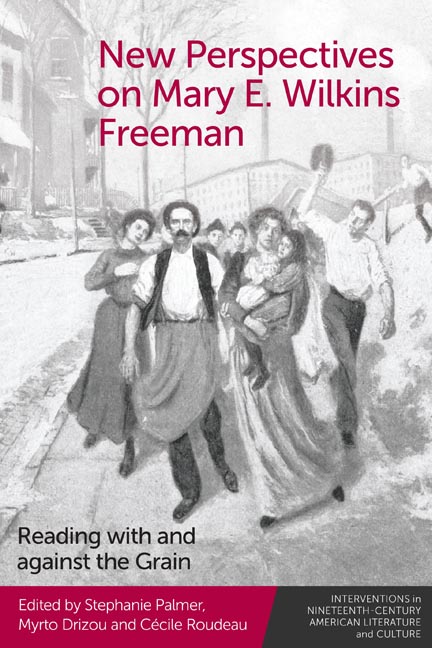Book contents
- Frontmatter
- Contents
- List of Figures
- Acknowledgments
- Contributors
- Reading Freeman Again, Anew
- Part I Kinship Outside of Normative Structures
- Part II Violent, Criminal, and Infanticidal: Freeman’s Odd Women
- Part III Women’s Work: Capital, Business, Labor
- Part IV Periodization Reconsidered
- Afterword: Why Mary E. Wilkins Freeman? Why Now? Where Next?
- Index
9 - Literary Businesswoman Extraordinaire
Published online by Cambridge University Press: 20 October 2023
- Frontmatter
- Contents
- List of Figures
- Acknowledgments
- Contributors
- Reading Freeman Again, Anew
- Part I Kinship Outside of Normative Structures
- Part II Violent, Criminal, and Infanticidal: Freeman’s Odd Women
- Part III Women’s Work: Capital, Business, Labor
- Part IV Periodization Reconsidered
- Afterword: Why Mary E. Wilkins Freeman? Why Now? Where Next?
- Index
Summary
The distinguished accolades enjoyed by Mary E. Wilkins Freeman are numerous and well known. At the start of the twentieth century—when her career was at its height—she and Mark Twain were considered America’s most beloved writers. She was the first recipient of the William Dean Howells Gold Medal for Distinguished Work in Fiction (1925). She was among the first women elected to membership in the National Institute of Arts and Letters (1926). And the bronze doors at the American Academy of Arts and Letters in New York (installed at its West 155 Street Administration Building in 1938) bear the inscription, “Dedicated to the Memory of Mary E. Wilkins Freeman and the Women Writers of America.”
What is not well known, however, is the magnitude of Freeman’s phenomenal financial success as a nineteenth-century literary businesswoman extraordinaire. Freeman started her long career in the early 1880s and in 1883 received an inheritance from her father of $962.90 in cash and one-half interest in his Brattleboro, Vermont, business property valued at $5,000 (Marlboro District Probate Court). Yet after her death in 1930, the value of her estate at the height of the Great Depression—even after her personal property had been auctioned off at embarrassingly low prices—came to a grand and spectacular finale of $117,285.41 (Brown). Adjusted for current inflation and putting aside for the moment all the particulars, that would be equivalent to starting out with $24,214.38 in 1883 and ending up with $1,779,365.41 in 1930 when the stock market was at its worst.
By any standard, that’s quite a financial success story. It’s extraordinary, in fact, considering that during Freeman’s early adolescent years in Brattleboro, Vermont, her family were “reduced to proud and shabby gentility,” as biographer Edward Foster notes, especially when the purse became so lean that they moved into the home of Reverend Thomas Pickman Tyler and his wife, and kept house (37, 42). Freeman’s father slipped more and more into the background and “the neighbors thought of him as a ‘putterer’ and as one who was always doing little services for others, partly perhaps to maintain his own dignity” (37).
- Type
- Chapter
- Information
- New Perspectives on Mary E. Wilkins FreemanReading with and against the Grain, pp. 164 - 181Publisher: Edinburgh University PressPrint publication year: 2023

